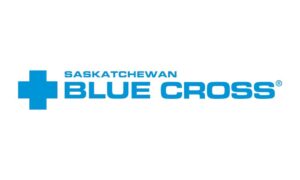Revealed – how many small businesses have a disaster plan

“In the aftermath of natural disasters, we typically see massive and heartbreaking clean-up efforts, a lengthy and hard-going recovery, questions asked about how small and family businesses and the communities they are a part of and service will bounce back, and what, if anything, could have been done to better prepare,” Billson said.
The report found that only one in four small businesses have a disaster plan – but preparation is key to “building resilience and coming through natural disasters in the best possible shape.”
“As we have sadly seen too often, natural disasters can cause lasting harm to our enterprising women and men,” Billson said. “Small business creates vitality in our communities, employs two out of every five people with a private sector job and contributes one-third of our GDP, so it is absolutely worth building its resilience.”
Findings and recommendations
Some of the report’s findings and recommendations include:
Having a “certainty of response” for small business owners so they are automatically elevated and front of mind in disaster response, recovery, and funding arrangements, including indirectly affected businesses;
Establishing a business hub after a disaster as a single point to seek help from federal, state, and local government and non-government agencies to provide support;
Adopting a “tell-us-once” triage system to save small business owners the trauma and time associated with repeating their story;
Creating an opt-in “My Business Record” to allow a small business to digitally store all relevant government-held and other vital information it might need after a disaster;
Providing infrastructure grants to ensure critical infrastructure relied upon during a disaster is fit-for-purpose remains intact and functioning;
Implementing a “good neighbour” program and mitigating risks on land the government owns;
Making a government subsidy available when workers in a small business are called out for volunteer work for an extended period or a business is required to scale back operations because of volunteer activities; and
An additional amount six to nine months after the small businesses received an Australian government grant for a “business health check” and to support any necessary adjustments.
In many cases, small business owners are operating uninsured, underinsured, or with excesses payable that prohibit them from making a claim due to difficulty accessing affordable insurance. In some communities, insurance is unavailable.
The report calls for addressing this complex market dysfunction, as well as creating an integrated response to disaster risk management for identified disaster-prone areas that incorporates priority access to mitigation expenditure, co-ordinated planning across levels of government, infrastructure hardening, interest-free loans for asset and activity protection and relocation schemes, and possible use of a dedicated reinsurance vehicle.



